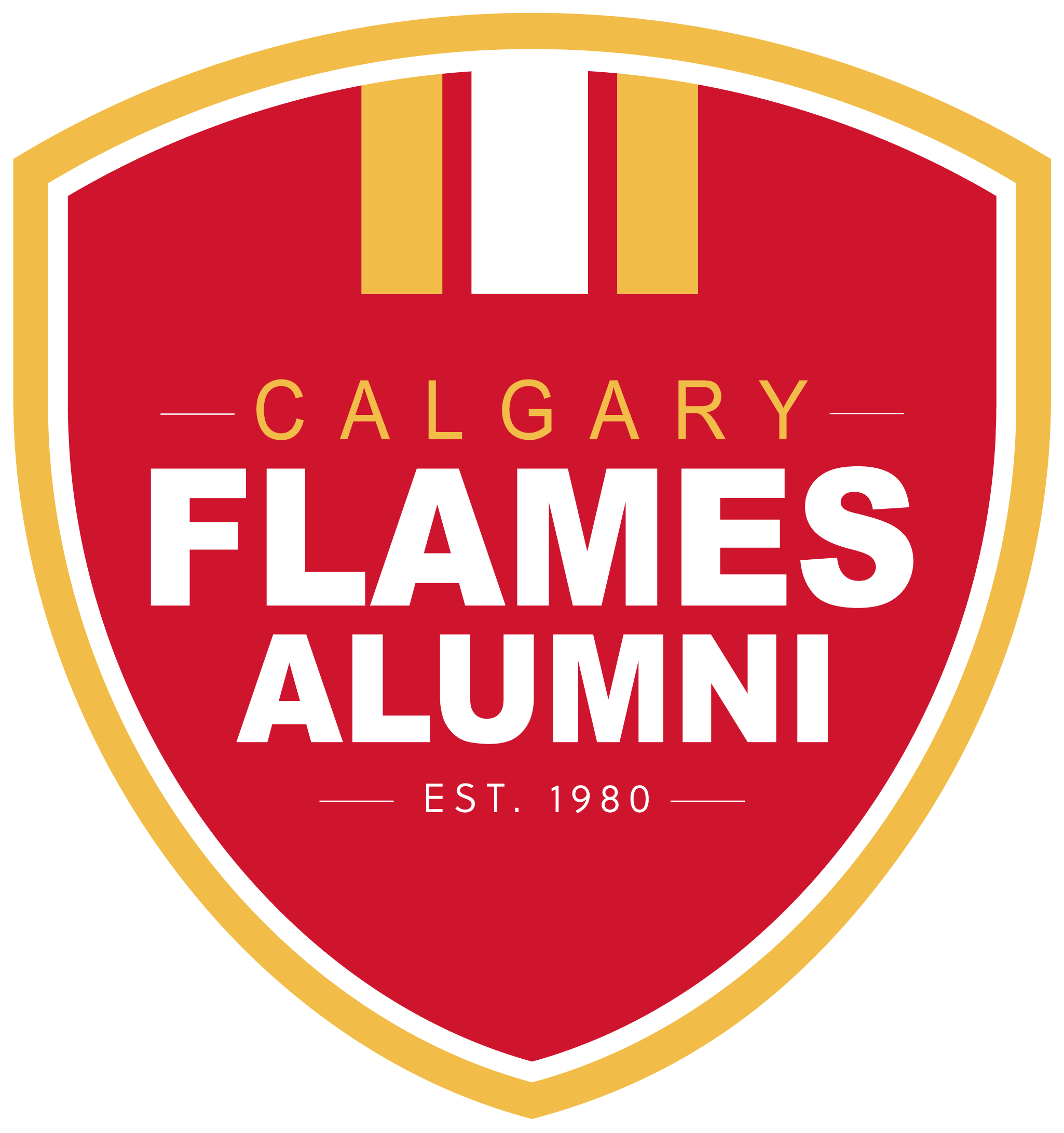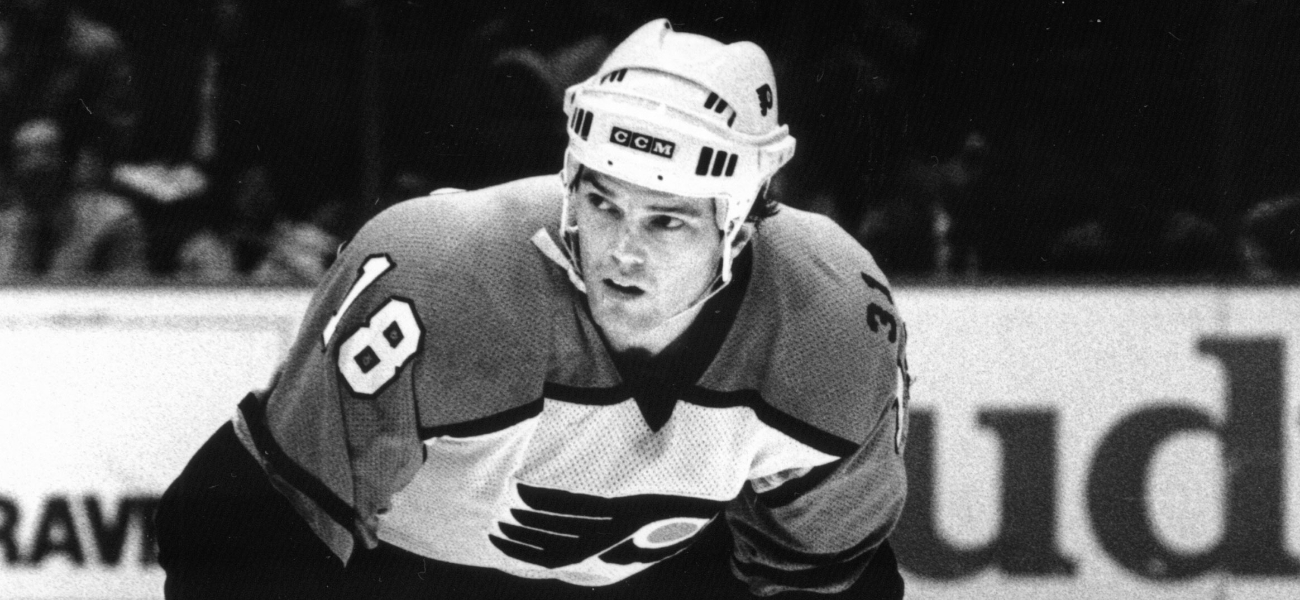In the early stages of COVID-19 reaction, as the NHL grappled with a workable format to kick-start a season on hold, Lindsay Carson allowed himself to indulge in a bit of look-back.
Who says nostalgia ain’t what it used to be?
“They were showing the old games on TV,” the seven-season Philadelphia Flyer is explaining. “And they picked up our ’87 Cup final against Edmonton. They played the series sequentially. I’d never really seen the whole thing before.
“So I settled in, had the chicken wings going.
“And you know what? I was totally impressed with our hockey team. We outshot Edmonton in a lot of games! I’d always thought no, no. No way. Hexy (goaltender Ron Hextall) won the Conn Smythe, of course. And he was incredible.
“But I just thought we’d gotten pummelled with shots. That wasn’t the case.”
The underdog Flyers pushed that series the limit, losing the deciding Game 7 in soul-crushing fashion, 3-1 at Northlands Coliseum against that dynastic Edmonton powerhouse of Gretzky, Kurri, Coffey, Fuhr, Messier, et al.
“A huge highlight in my hockey career, obviously,” says Carson.
“And from the standpoint of growth in accepting a role to a bigger picture, too. We all want more. We all want to be front and centre in the context of where you fit because we’re all competitive people.
“And frankly, we all have egos.
“If you don’t, you’ll have a tough time making the NHL because you gotta keep making yourself better to keep your ego going.
“So for me to adapt and take the role I did, with an interesting coach in Mike Keenan, who I played for, for five years, it turned out to be a great life event for me in understanding how to be a great teammate, not only a great sports event.
“As I said, watching again, I was impressed. We didn’t have the goal-scoring talent Edmonton did, but we deserved to be in Game 7.
“Second place in a Cup final is no fun because nobody remembers you, but we do remember each other. Your teammates. We’re still very close.
“So I can imagine how close teams are that actually win the Cup, like the ’89 Flames.
“I can see it when I get together with the alumni guys in Calgary.”
Born in Oxbow, Sask., (hometown of Theo Fleury) and reared in North Battleford, Carson ended his hockey career in the summer of ’89, after a season in Hartford and one year in the AHL. Since the mid-90s, he’s made his home here.
Nearing 60, Carson is established in business as Canadian vice-president of Infovista, a tech company headquartered in Massy, France, a suburb of Paris.
“Infovista has 5G planning software, most of the mobile network operators in Canada use to plan where they put their cell towers and whatnot,” he explains, to the uninitiated.
“They do predictions on what are the best locations based on the software. They have tested optimization equipment which has to do with optimizing cell phone networks.
“I’ve been involved in some real cool technologies, from the internet to optical stuff to high-end optical and microwave to now cellular phone stuff.”
The path to where Carson finds himself today professionally involved a couple of detours, aligned with a measure of luck.
“I originally kicked the tires in the investment business, because I’d studied to be a certified financial planner while I was playing,” he recalls. “In the quiet times when I was playing, I’d study, remotely.
“I thought that would be my destiny. It was an opportunity to stay in Philadelphia.
“So I stuck my toe in that water. And found out it just wasn’t of interest to me when I finally sat down across from somebody to discuss financial planning.”
From there, Carson and the family packed up, pointed north, back to his home province, and he enrolled at the University of Saskatchewan in Saskatoon, with an eye towards a law degree.
“The reasoning for that was that during my playing days I’d been involved with agents who weren’t lawyers and had a couple of negative experiences, in the context of trust and commitment. This is back in the Alan Eagleson days, right? There was a lot of – in my opinion – deals going on behind the curtains that were not in any sense true to the law.
“So I wanted to be a lawyer first and then a player agent.”
After a year attending the U of S, he wasn’t accepted into law school.
“At the time, my wife was pregnant with our third child – he’s now 30, this is the early ’90s. I just knew that our third-born should be born in the U.S.”
So next stop, Spokane, Wash., with no real plan as to what might come next.
“I actually answered an ad in the paper for an inside sales position in the high-tech world,” Carson recalls. “At that time, the early ’90s, the tech boom had started and this company was moving its office out of the Silicon Valley into a little corridor between Cor d’Alene and Spokane.
“The reason for the move was because as soon as they trained someone, another company would hire that person away for a little better salary.
“That’s how fast things were moving in the industry back then.”
“Routers, the stuff you have in your basement now? I sold those. That little $70 router that has four ports? We used to sell those things for $500 a port when the ethernet and internet started to get going connecting PCs.
“I just stumbled into the right industry. I was diligent but I don’t necessarily think I was a good salesman. I was just selling the right stuff.
“Things began to snowball.”
Carson began travelling throughout the U.S. northwest as well as into Canada, to Calgary and Edmonton, Winnipeg and Vancouver.
Concerned about long-term viability in a smaller centre such as Spokane, he asked to be moved back to Canada and chose the Southern Alberta option over Vancouver.
He’s been here ever since, hooking up with the Flames’ alumni early on.
“An incredible organization, these guys,” he lauds. “I crossed paths with Patter or Joel Otto – can’t remember which – first and they reached out: Welcome to Calgary, why don’t you come and get involved with us. You just had to have played in the NHL to join. Back then the alumni was smaller, of course. So small that – how can I explain this? – I felt like a former Flame. They were that good at embracing
guys who hadn’t played a game for the Flames.
“It was fun to connect. All these opportunities to skate, which was fun, let alone all the charity events to help raise money and raise awareness.”
Nearing 60, with three grown sons – middle boy Matt, 31, works on the production side of the movie industry in Vancouver and has developed a pilot for a drama show revolving around the experiences of youth hockey – Carson is happy to report that life inside the tech world continues to be fulfilling.
“I love Calgary and I still love what I’m doing,” he says. “I don’t see that changing.
“I’ve worked hard at it but I’ve been really fortunate, too. The transition has worked out as smooth as I thought one could be.”And, as I mentioned, I stumbled into it a little bit. So I’m really grateful for that.
“We were talking about transition. I still have my last pay stub from the NHL. My new job, the inside sales job, in Spokane after leaving hockey, the pay stub was $7.85 an hour. And then I showed them that pay stub.
“So I reminded my sons that things can move very fast, but typically you don’t start at the top and you’ve got to earn your stripes.
“Just stick with it. Go get started somewhere and it’ll work out.”

